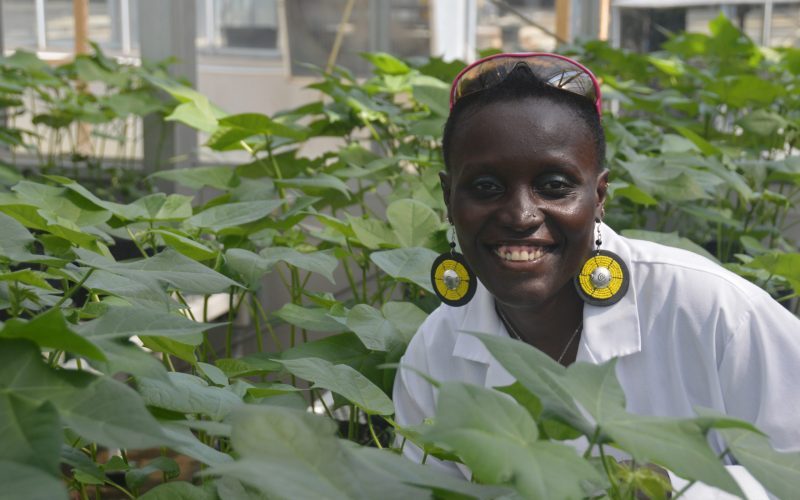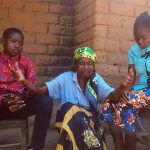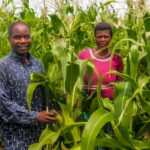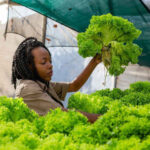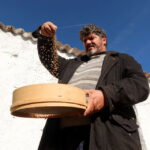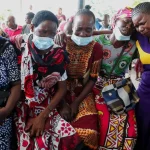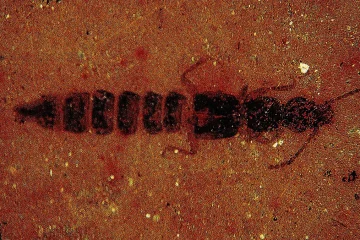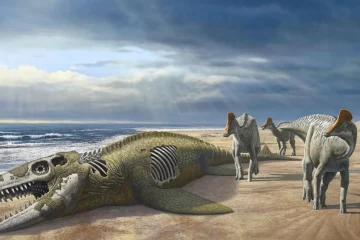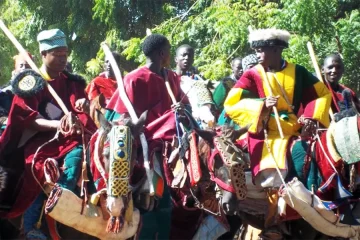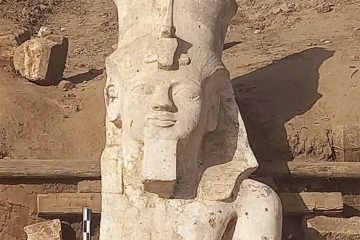JOVIAL RANTAO
GROWING up in a small village in Kenya, Esther Ngumbi experienced first hand the full impact of insect pests and plant diseases on human beings.
Ngumi recalls how, as a young girl she and other family members would work hard on the farm, every day, planting their best seed so that they can harvest food one day.
“Then all over, sudden,” she said. “Insects and pests would attack our crops and all our hard work would be in vain. The following months would be difficult for my family and me as well as neighbours.”
It was out of the hardship experienced by her community in rural Kenya that her dream to be a scientist was born.
Today, that little girl who grew up on a farm in Kenya graces the world stage where she is recognized as a leading professor in entomology.
Ngumbi is a distinguished postdoctoral researcher at the University of Illinois at Urbana-Champaign in the US. She was inducted into the US National Academy of Inventors after being granted three patents from her research.
In 2018, she was honoured by the Society of Experimental Biology and the Presidential Medal from the government of Kenya.
This year, she is scheduled to present the British Ecology Society Plenary lecture in December.
“ At an early age, I wanted to pursue a career that would allow me to develop solutions for my family, our neighbors, the community and the country at large. However, there is a twist. Growing up I did not have role models to look up to. The only people that I was exposed to at an early age were accountants. I still remember how I would go to the banks with my parents when they were collecting their paychecks to send us to school. I still remember looking at the accountants – they would be sitting in nice chairs, dressed in suits and working in an air-conditioned room. I wanted to become an accountant,`’ she said.
After completing high school as the best student, she enrolled for a BSc degree at Kenyatta University. It was there that her love for science was ignited. Ngumbi still remembers her first year as if it was yesterday.
“I still remember my first Biochemistry lab. I very much enjoyed it and did not want to leave the lab. My first real science experience was magical. I enjoyed the process of science. Having a question, generating hypotheses, designing an experiment to test your hypothesis, doing experiments, getting results, analyzing them to see if your hypothesis is true. The rest is history. Today, Science still fascinates me. I still love and enjoy the Science process, just as I did many years ago,” she said.
She left Kenyatta University with a Masters degree in science.
Reflecting on her journey, Ngumbi lamented on the absence of role models. She also spoke about how she was intimidated in the early stages of her career. “There were always more men than females. Then when I moved to the States, I realized that there were fewer women of color scientists. At times, I wondered, why did I choose to pursue a career where there were not many of us? Nevertheless, the love for Science, the satisfaction I would get in Science kept me going. Globally, according to UNESCO, women scientists make up less than 30 percent.
After finishing my Masters, I went to Israel and worked in the Ministry of Agriculture for 2 years. Once again, it felt strange to be a woman in science but I pushed on. After working for 2 years, I thought it was time to go for the ultimate –a Doctor of Philosophy in Science. I looked back at where I had come from, how I did not have role models—yet, I could change this –and It was an easy decision. I decided to push on and pursue a PhD degree. I did exactly that and on a beautiful summer day, August 5, 2011, I graduated with a PhD in Entomology. It was the best day of my life.
I am also grateful to my parents and family for inspiring me to push on. They encouraged me to persist even when the challenges were daunting. They always stressed that they wanted to have a professor in the family. They are retired teachers and they did the best they could to support my journey and to inspire me to stay focused. They still are an inspiration to me,” Ngumbi said.
She does not forget her birthplace Mabafweni and everyday dreams of helping the girls back home.
“I still remember when I was walking on the stage to get my PhD degree. My mind flashed back to Mabafweni. I wondered at all those girls and then imagined—that if they had the opportunity and the encouragement that I was lucky to have along the way—they too could be like me. Then I told myself that I would do anything within my reach to provide for opportunities, so that young girls, especially from poor and rural communities, have opportunities so that they can break the barriers and go for the stars. Give them the opportunities so that they can reach for their stars. “Since then I have dedicated my life to encouraging girls and when I can provide opportunities, mentorship and everything so that they have the opportunity. In addition, every time I am interacting with children from my community, all I can see is potential. I see future scientists, medical doctors, and engineers. I see so much potential in them and all I can do is provide them with numerous opportunities so that they can discover their talents and then run with them. I will continue to be there for all who would allow me to. I just want everyone to succeed and grow to achieve his or her full potential.”
Ngumbi said one of the best ways of increasing the number of women in science is to create more role models.
She expanded: “We need more role models out there. I always say, you cannot be that what you do not see. We cannot just assume young women would desire to be scientists if they never see other women scientists. Those of us who are already scientists should make it a priority to be there for our young women. We should intentionally reach out and go to schools and other institutions where young girls are. We should be present and importantly keep projecting the image that Science is not reserved for boys or men. That women can do science and succeed in science. Your magazine featuring women scientists will also bring a positive message to women—showing that they too can make it.
“There should be many more publications featuring a rainbow of women scientists that are sent to all schools—from elementary to high schools to Universities. As young women begin to see faces of other women scientists and read about these scientists’ accomplishments, I believe they will begin to see that they too can be these women one day.
Media, including TV and Radio also should be outlets that highlight women scientists and share about the research they are doing and their accomplishments. At the same time, there should continue to be many opportunities that are purposely created to nurture young women to be scientists. From elementary school-to high school- and into University institutions. Moreover, we should also have avenues where they can go and experience the magic of science. Science boot camps are one approach.” – Women in Science.

